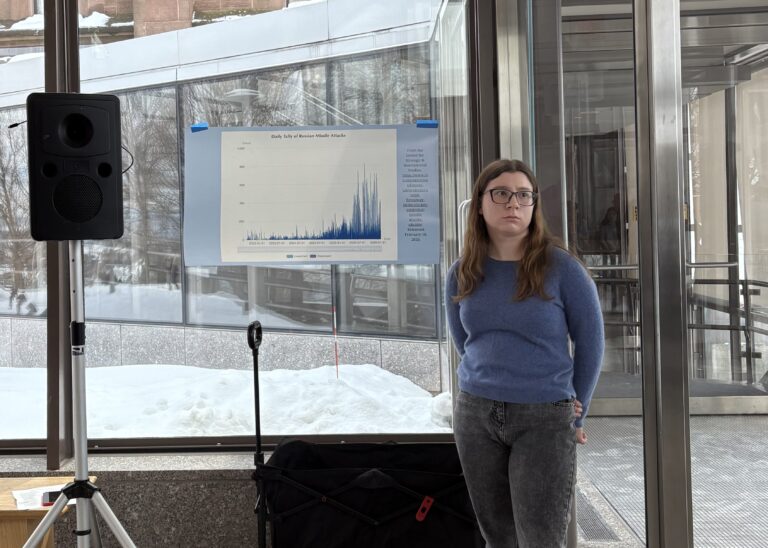Chinese novelist discusses her coming of age as a writer
As prize-winning novelist and former Wesleyan visiting professor Zhang Jie might say, we are constantly changing our perspective on things. In her lecture on Tuesday entitled “Nothing is Forever,” Jie discussed how changes in her own personal perspectives have affected her voice as a writer.
Jie’s latest novel has won five awards, some even through unanimous votes. She has several awards to her name, including the Malaparte Literary Prize from Italy, as well as several national Chinese awards, such as the Maodun National Award for Novels, the National Short Story Award, and the National Awards for Novellas. Her works include Heavy Wings (1985), Who Lives a Better Life (1979), and Emerald (1985). At the time she was the only writer to have won all three national awards in Chinese literature since 1949.
“I don’t even like my own work anymore – the structure, the language,” Jie said. She said that her views on certain issues have changed tremendously, and correspondingly, so has her style of writing.
Jie’s notion of love is one aspect that has changed in her writing.
“When I was young, I wished my lover could stay the same forever,” she said. “Now, I cannot even guarantee that I will not change! Besides, you can get sick of it.”
“When I saw my first grey hair, I couldn’t sleep, thinking about death,” she said. “I used to wish that all my family and friends would be surrounding me when I died. Now I wish no one will be around. I think the best way to die is while backpacking in the woods. You just disappear without a trace of identification.”
The entire lecture was conducted in Chinese, and translated by Tang Di ’89, Jie’s daughter.
“I really loved hearing her talk in Chinese,” said Ian Hanks ’05. “There is a lot lost translation, though her daughter did a great job of it. I wish there was more of that going on at Wesleyan. She had a great air of confidence about her because she was speaking in her native language.”
“I used to have only one pair of eyes, now I think that I have several, and I can look at everything from different angles,” Jie said. This, she claims, has been very helpful and has vastly improved her writing.
“To be successful, you need two things – talent and effort,” she said. “But these are not enough for a writer. A writer must be able to understand the world.”
She said she believes that she has gained and continues to gain a better understanding of it, and thus, has become a better writer in the process.
“[Zhang Jie] is a writer who is never satisfied with her own work, like she does not remember her old work,” said East Asian Studies major Carmen Cheung ’05. “She seeks to change, to transform.”
Jie was formerly a visiting professor at Wesleyan from 1989 to 1990, and from 1994 to 1996.







Leave a Reply